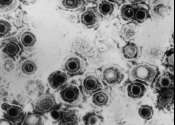Maximum human lifespan has already been reached, researchers conclude
A study published online today in Nature by Albert Einstein College of Medicine scientists suggests that it may not be possible to extend the human life span beyond the ages already attained by the oldest people on record.
Oct 5, 2016
32
0









